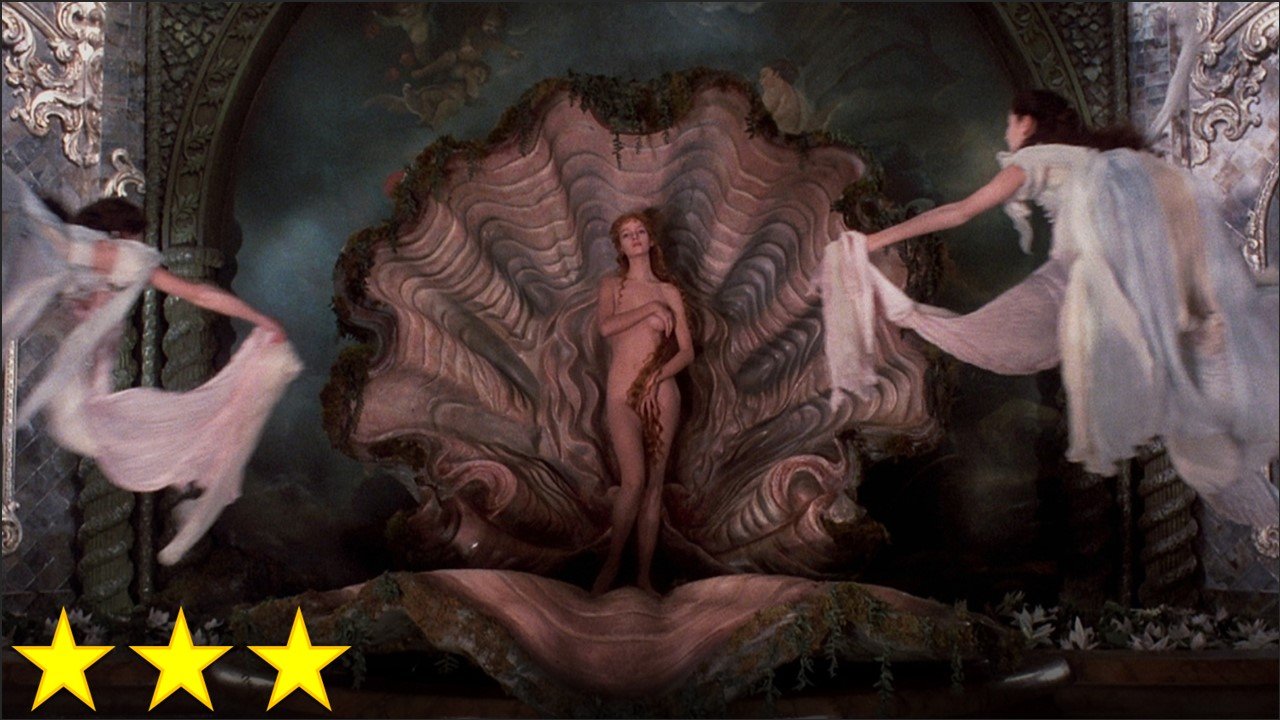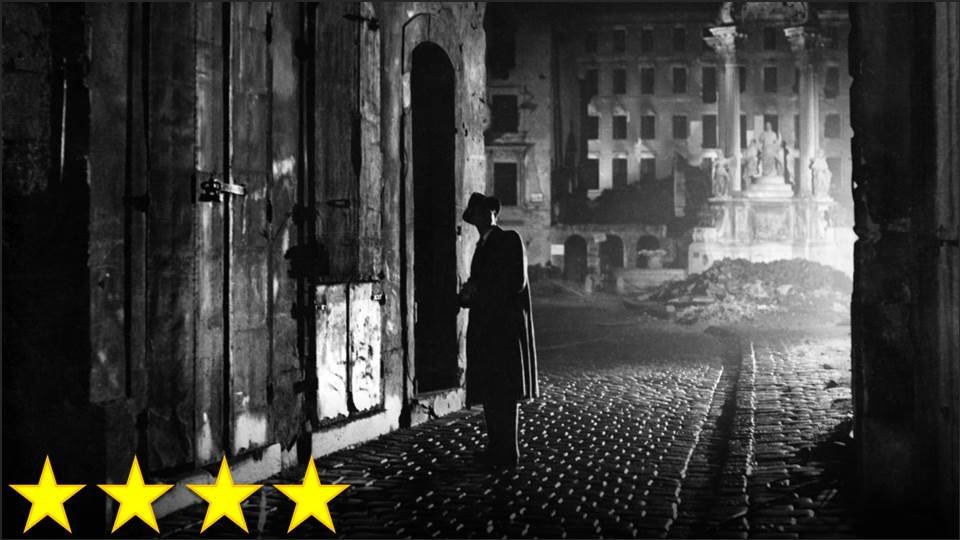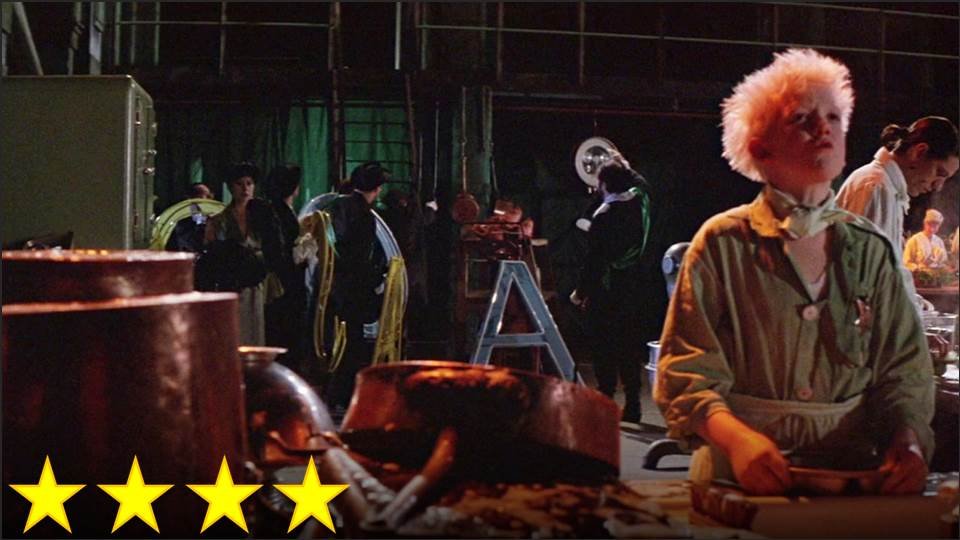The story of Baron Munchausen is an old one, even though there’s really not much of a story here. I’ve seen the old German film adaptation of this story from the 1940s, and while many hold it as a great classic of cinema, I find it unbearable. That being said, it is imaginative, and whimsical, so I wondered what a good director/screenwriter would do with it, so I naturally became curious about Terry Gilliam’s version from the ’80s. (I also have a big fascination with ’80s fantasy cinema, so this one’s been on my list for a long time now.) Fortunately, Gilliam greatly improved this story by giving it more structure, but unfortunately, he negates his improvements with an ending that makes little sense.
What I like about this film is that there is a clear main cast of characters and a clear quest that serves as a through-line for all of the zany misadventures around the world (and outside the world). Unlike the 1942 film, it is very clear in this movie which of the characters have special abilities, what abilities those are, and what these characters have to do with the Baron, so none of them throw the audience off-guard or feel too random (it’s particularly helpful that they’re part of the opening exposition). There’s also a sense that each scene – or at least each location on the baron’s journey – makes a contribution to the story, so the story doesn’t feel too random or arbitrary. While all of this helps make the movie far more enjoyable to watch by allowing the viewer to focus on enjoying the fantasy, by the end of the film it is entirely unclear what has happened. There actually doesn’t seem to be any possible explanation for how the events that have occurred could have possibly occurred, unless one buys into the artsy, peusdo-intellectual notion that two or three contradictory stories can be true at the same time in cinema, which is exactly the kind of sophistry I would expect Gilliam to express. Still, as disappointing and irritating that I find it that the film makes no sense and seemingly has no point, the cast is good, the comedy is fun, and the visuals are, predictably, absolutely delightful, making this film worth the watch for any lover of fantasy.


